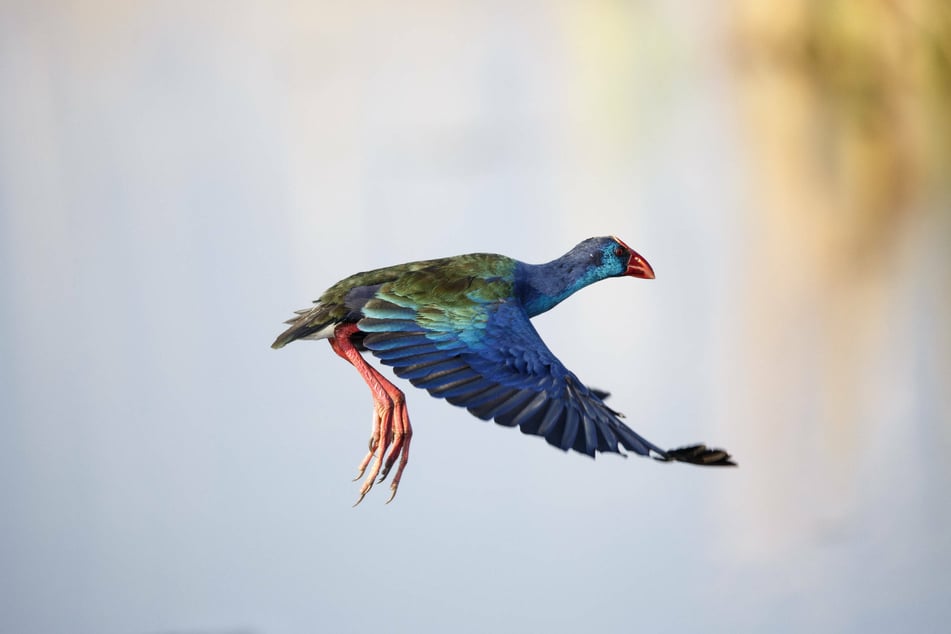Strange exotic birds appear in Maine at an unlikely time of year
Gray, Maine - These colorful birds seem to have gotten lost on their way to the Tropics.

People all across Maine – a state known for its long, harsh winters with several feet of snow – have reported spotting brightly colored tropical birds over the past week.
The first warm-weather bird, also known as a purple gallinule, showed up in Gray, outside Portland, on January 16. A few days later, a second purple gallinule was seen in Bar Harbor.
Purple gallinules typically spend the winter in tropical swamps in the Caribbean and Florida.
So how did these tropical birds end up in a cold-weather state like Maine, of all places?
They were likely carried to Maine by strong winds from the storm that passed through New England over the weekend, said Doug Hitchcox, a naturalist at the Maine Audubon.
While it’s rare, this isn't the first time strong winds have driven the gallinules to the cold area, with the first documented sighting of the species in Maine dating back to 1870, according to NBC News.
The beautiful birds are best recognized by their "incredibly long toes," according to the naturalist. While the birds' extremely long toes allow them to walk on top of soft mud in the wetlands, they can easily become their biggest threat in cold regions like Maine, making them more susceptible to frostbite.
Some of the gallinules who arrive in Maine will likely perish due to cold temperatures and lack of food. However, many of them will be able to continue their journey to the Tropics, Hitchcox reassured animal lovers.
"If they’re in good health, I would see no reason a gallinule would not be able to fly itself all the way down to Florida."
Cover photo: imago images / Nature Picture Library
